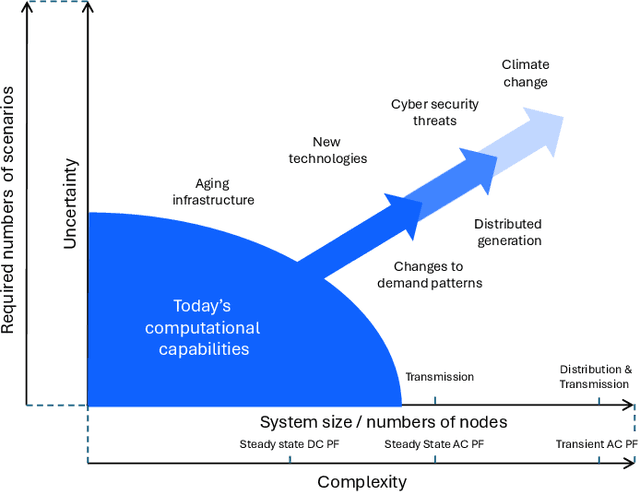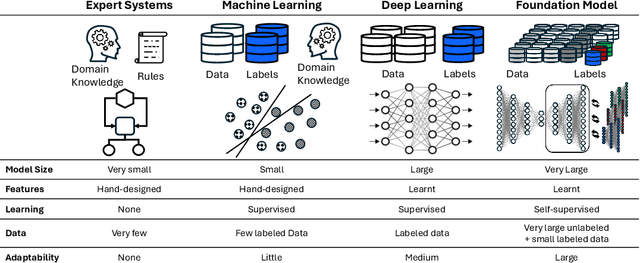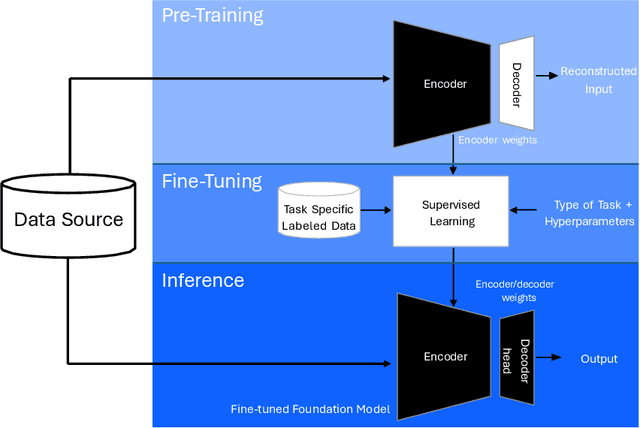Leonardo S. A. Martins
A Perspective on Foundation Models for the Electric Power Grid
Jul 12, 2024



Abstract:Foundation models (FMs) currently dominate news headlines. They employ advanced deep learning architectures to extract structural information autonomously from vast datasets through self-supervision. The resulting rich representations of complex systems and dynamics can be applied to many downstream applications. Therefore, FMs can find uses in electric power grids, challenged by the energy transition and climate change. In this paper, we call for the development of, and state why we believe in, the potential of FMs for electric grids. We highlight their strengths and weaknesses amidst the challenges of a changing grid. We argue that an FM learning from diverse grid data and topologies could unlock transformative capabilities, pioneering a new approach in leveraging AI to redefine how we manage complexity and uncertainty in the electric grid. Finally, we discuss a power grid FM concept, namely GridFM, based on graph neural networks and show how different downstream tasks benefit.
Fast-Slow Streamflow Model Using Mass-Conserving LSTM
Jul 13, 2021



Abstract:Streamflow forecasting is key to effectively managing water resources and preparing for the occurrence of natural calamities being exacerbated by climate change. Here we use the concept of fast and slow flow components to create a new mass-conserving Long Short-Term Memory (LSTM) neural network model. It uses hydrometeorological time series and catchment attributes to predict daily river discharges. Preliminary results evidence improvement in skills for different scores compared to the recent literature.
 Add to Chrome
Add to Chrome Add to Firefox
Add to Firefox Add to Edge
Add to Edge